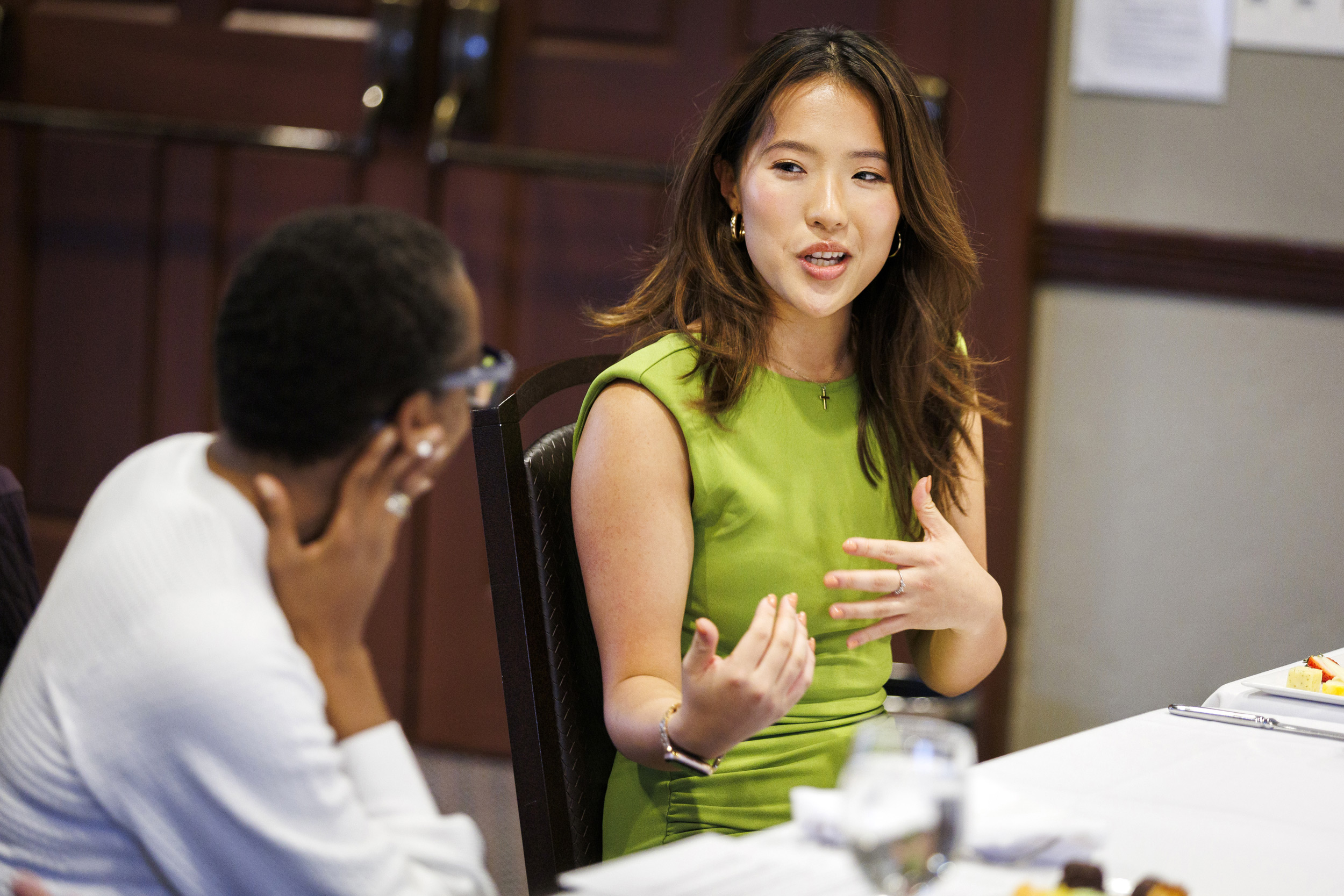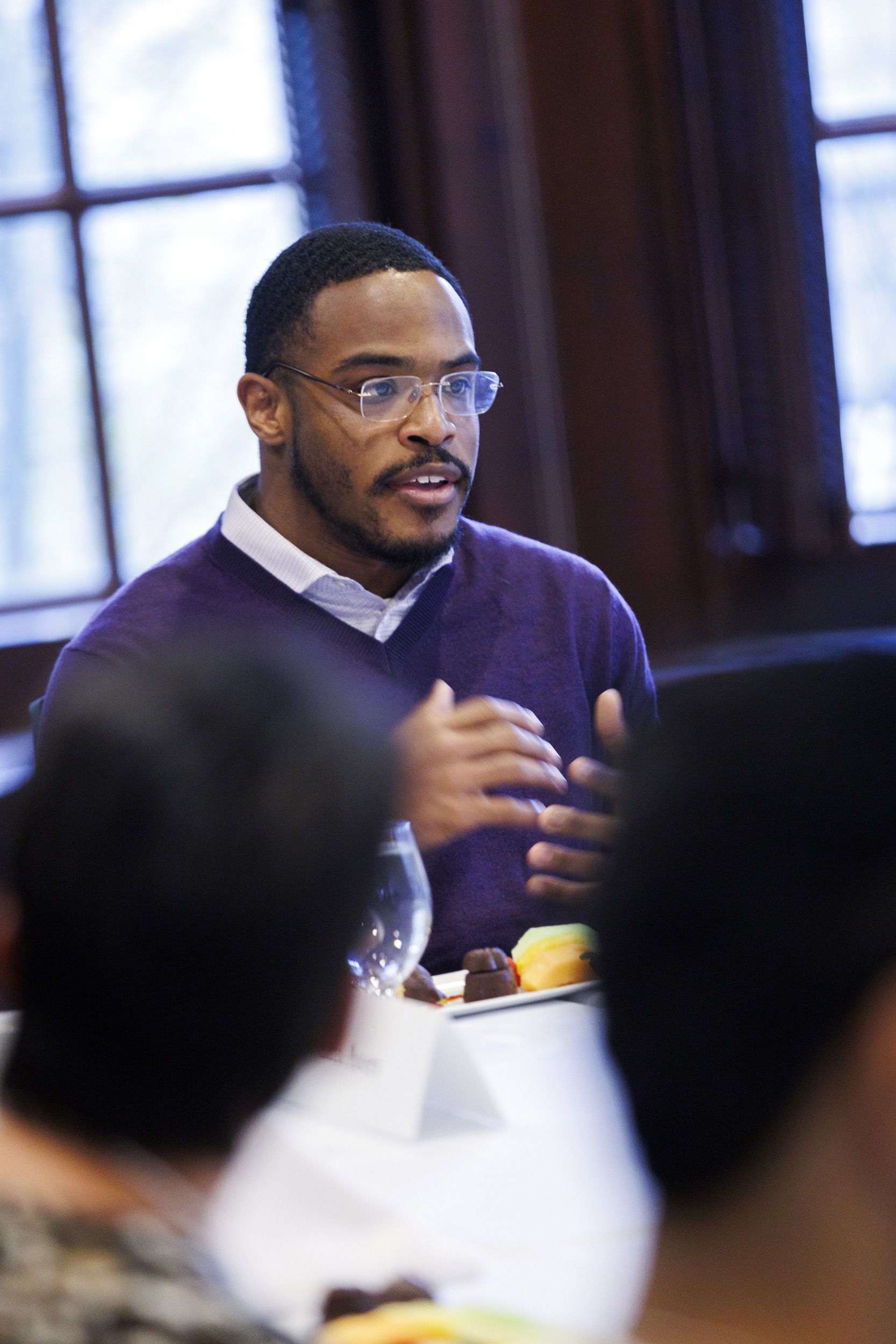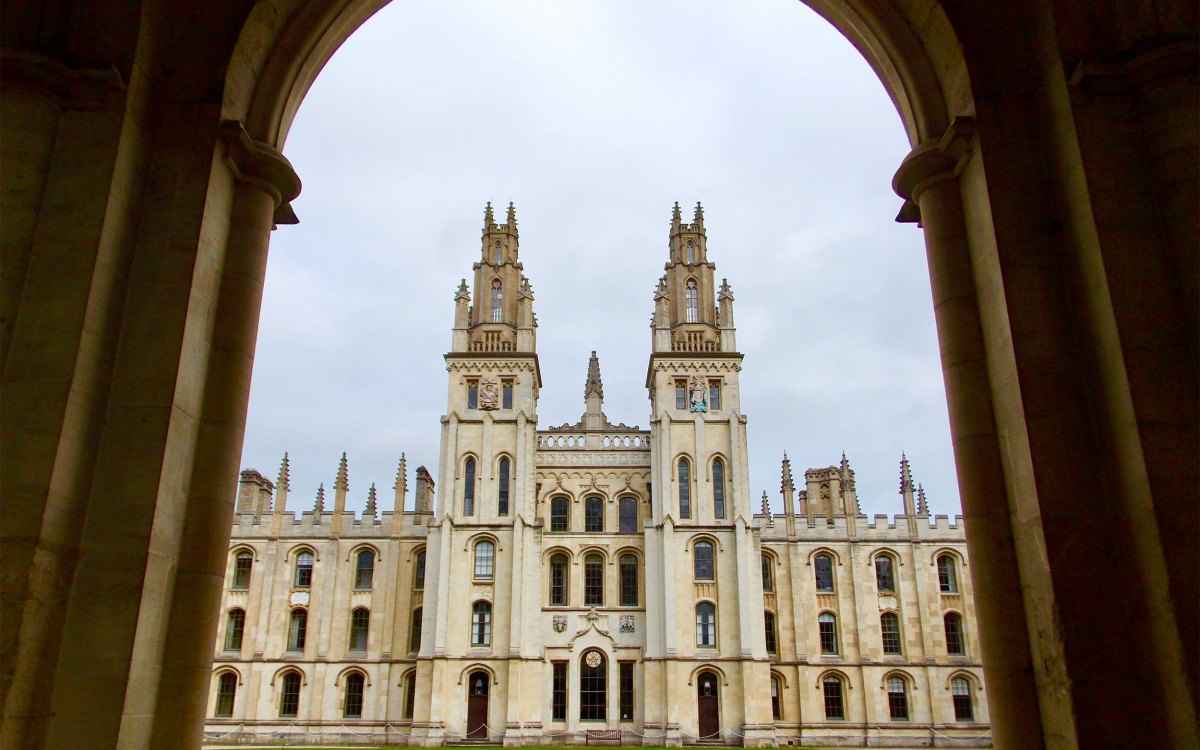
Fellow Lucy Tu ’24, who ran a K-12 health and science literacy program in New York City, shared her experiences with President Claudine Gay.
Photos by Stephanie Mitchell/Harvard Staff Photographer
Call it summer school in public service
Presidential fellowships give students a chance to kick the tires on careers for greater common good
One shepherded accused people through the criminal justice system at the federal Public Defender’s Office in Washington, D.C.; another helped Medicaid enrollees and others denied treatment and medication cut through red tape to get services; and a third worked at under-resourced rural schools in the Navajo and Hopi nations.
These are some of the summer projects that recipients of this year’s Presidential Public Service Fellowships shared with President Claudine Gay, faculty, and staff during a gathering at the Harvard Faculty Club on Friday.
Launched in 2011, the initiative gives students the chance to get exposure to community service programs and encourages them to consider public service careers. About a dozen or so from across the University are selected and receive financial support to work in fields such as education, public health, government, and social services, where the need — and challenges — are often most acute.
Hilary Adeleke ’24, a history of science concentrator with a secondary in global health and health policy, said her summer work “really affirmed that you can marry medicine policy and sustainable healthcare within a low-income context.”
One of five Harvard College fellows, Adeleke worked as a case-manager intern for Boston Healthcare for the Homeless, connecting clients with critical services. She also volunteered at St. Francis House in downtown Boston providing care at the organization’s foot clinic — a common medical problem area for those experiencing homelessness.
“It was just really eye-opening to me. Although medicine can be seen as objective, it’s not necessarily apolitical, and you really see the impact of policy on these people’s everyday lives,” Adeleke said.

Joseph Wilson, a second-year doctoral student at Harvard Chan School, was a summer camp counselor for Black students. He said his experience taught him the importance of “planting a seed.”
Harvard University
Alta Mauro, associate dean for inclusion and belonging, said, “I think a lot of time in the classroom is spent asking questions about why, but a lot of your projects are asking questions about why not? Why can’t this be a reality? What would it take to get to this point? How do we back into a more just world?”
Joseph Wilson, a second-year doctoral student studying environmental health at Harvard Chan School, said his experience taught him the importance of “planting a seed.”
“It’s all you have to do, and your presence is that seed. I was a summer camp counselor in Jamaica Plain for Black students teaching them about climate change, these heavy science topics. It was exciting because, as a Black man in that space, I’m able to interact with the other students and say, ‘Yes, I’m a Ph.D. student. You can do it as well,’” he said.
Besides giving students a chance to apply what they’ve learned in the classroom to real-world settings, some of the participants noted it also allowed them to demonstrate to others that Harvard takes seriously its mission to give back.
More like this
“I think many times people can look at Harvard as, ‘Oh, they don’t care,’” he said. “So, to be able to present that as a way of saying, ‘This is what’s actually happening at Harvard, and how can we all work together to make our communities better.’”
Fellows offered suggestions for how to encourage more students to apply to the program and to pursue public service opportunities.
Lucy Tu ’24, a sociology and history of science concentrator recently awarded a Rhodes scholarship, ran a K-12 health and science literacy program in New York City and did some reporting for Scientific American on the side. As one of the first members of her family to attend college, she spoke about how receiving a grant as an incoming first-year allowed her to explore the viability of public service and how critical these fellowships are in encouraging more students like her.
“They gave me funding to do a public service project in my hometown, and that was really the first time I realized I could do public service and be paid for it in a way that allowed me to do public service. And because I had that opportunity as a pre-frosh, I then came into the University looking for other funding opportunities because I understood that it was possible to do a fellowship and continue my passion for public service work,” she said.
Though projects wrapped up when classes resumed this fall, some fellows remain in touch with the organizations and people they worked with, and plan to continue to do so.
“We’re really excited about transforming how students at Harvard orient to service,” said Matt Segneri ’04, M.B.A. ’10, Bruce and Bridgitt Evans Executive Director of the Harvard Innovation Labs and director of the i-lab’s Social Enterprise Initiative.
“My belief is so much meaning and purpose and ‘success,’ if you want to call that, in life involves service to others,” he said. “The more we embody that, and the experience of being a Harvard student, and the work we go out to do in the world, I think, is deeply impactful. And no one captures that better than all of you.”





